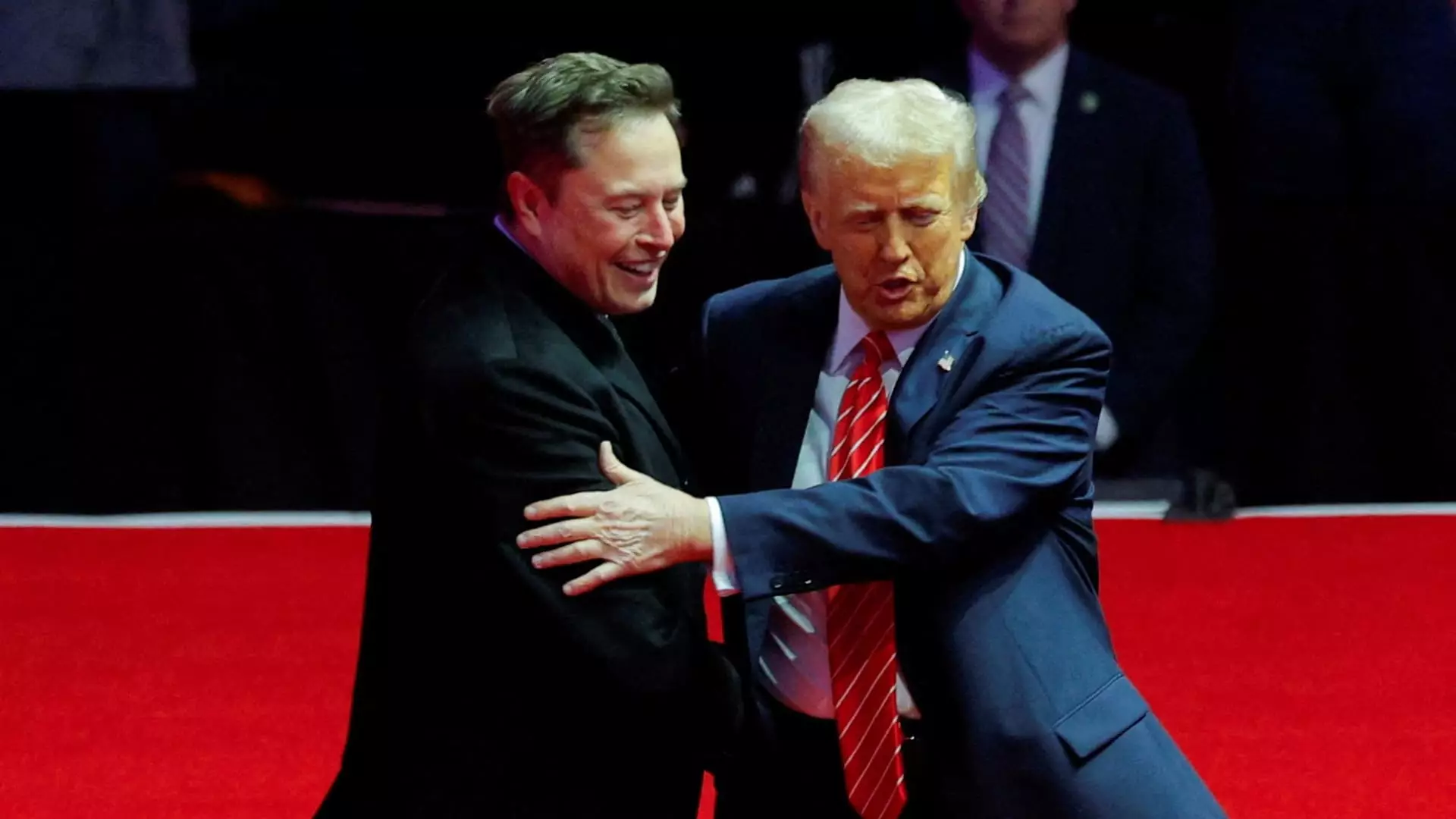In a landscape where corporate management is increasingly scrutinized, the intersection of politics and business has never been more prominent. Tesla’s recent fourth-quarter earnings report comes at a critical juncture, coinciding with the second term of President Donald Trump and the controversial advisory role that Elon Musk has taken with the administration. This development has raised significant concerns among Tesla shareholders. The engagement of a high-profile figure like Musk in political affairs leaves many questioning the potential implications for Tesla’s brand and market performance—concerns that echo through the many investor inquiries submitted in advance of the earnings call.
Following the announcement of the earnings report, Tesla shareholders voiced their anxieties, particularly regarding Musk’s dual commitment to the company and political activities. Over 100 inquiries focused specifically on Musk’s involvement with Trump’s Department of Government Efficiency, known as DOGE, and his open endorsements of controversial political figures. A particularly poignant question asked how Musk prioritizes his time between enhancing shareholder value at Tesla and his numerous public engagements. This sentiment reflects a growing impatience among investors who worry that Musk’s distractions could compromise the company’s innovative edge and operational focus.
The concerns expressed by investors are not merely speculative. Musk’s notable financial contributions—amounting to $270 million towards Trump and Republican initiatives—are symbolic of his deep entrenchment in the political landscape. His vigorous campaigning for Trump during the crucial election season took him away from the Tesla production facilities at a time when many felt that his focus should have been squarely on the company. Even Musk’s post-election actions, which included leisure time at Trump’s Mar-a-Lago resort, further provocatively challenge the notion of priorities when it comes to leading a pioneering company like Tesla.
Complicating this narrative, Musk’s involvement in international politics has also raised eyebrows. His endorsement of Germany’s far-right political party, AfD, in a notoriously anti-immigrant stance underlines a stark divergence from the inclusive culture championed by many modern corporate leaders. Attempts to straddle both worlds—business success and political influence—seem increasingly perilous.
The reputational stakes for Tesla have grown alarmingly high. Research by consulting firm Brand Finance indicates that Tesla’s brand value plummeted by 26% in the previous year—a dip attributed largely to Musk’s controversial behavior, the aging electric vehicle lineup, and waning consumer enthusiasm. This decline highlights an alarming trend: fewer consumers express interest in purchasing a Tesla, suggesting that Musk’s political preoccupations may be tainting brand loyalty.
Perhaps most troubling were Musk’s recent gestures during public appearances, interpreted by some as reminiscent of a Nazi salute—a gesture that, true or not, invited a wave of backlash and condemnation. While Musk dismissed the criticism as a “hoax,” it has triggered a wave of disquiet among investors. Prominent voices, such as Ruth Ben-Ghiat, have highlighted the broader implications of such actions, suggesting that they not only alienate potential consumers but also drag the brand into a morally ambiguous territory.
In the wake of these controversies, serious questions have arisen around the conduct expected from Tesla’s leadership. Investors have inquired whether Musk’s political engagements could potentially harm sales, reflecting a desire for transparency and accountability in corporate governance. Consistent shareholder pressure for clarifications and reassurances could leave Tesla in a precarious position as it navigates a landscape where brand perception is critical.
Yet, the question remains: will Tesla’s leadership address these concerns openly in forthcoming earnings calls, or will they elect to sidestep politically sensitive topics? As history indicates, addressing investor concerns directly may not be a priority for Musk, particularly given he has avoided discussing political matters in prior calls. Whatever approach is taken, the pressure continues to build for both Musk and the company at large.
In a rapidly evolving world, the interplay of politics and business poses challenges that demand navigational skill and foresight. For Tesla, the implications of Musk’s actions reach far beyond individual shareholder concerns—they symbolize a broader struggle between innovation and political affiliation. As the electric vehicle market grows intensely competitive, how Tesla manages its brand reputation amidst its CEO’s political engagements will undoubtedly shape its path forward. For investors, the call is clearer than ever: amend your strategies and brace for a tumultuous ride, as the fusion of politics and profit unfolds beneath the Tesla banner.

